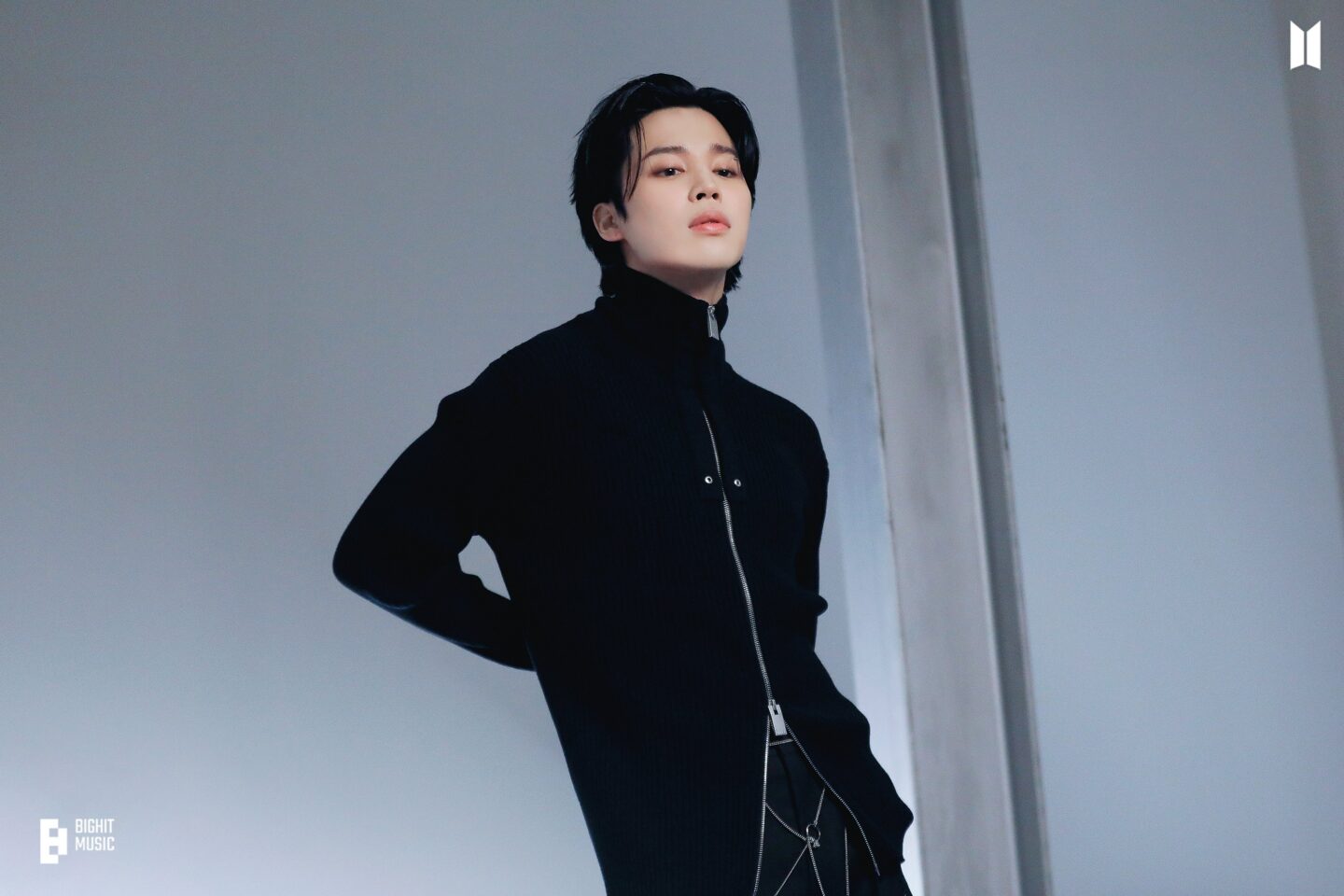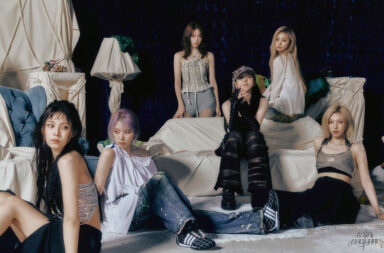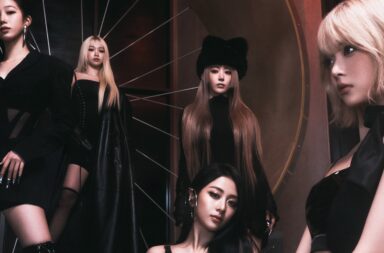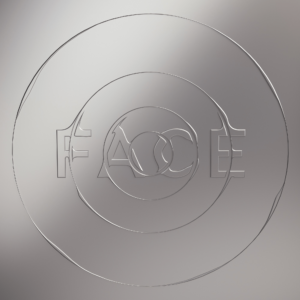
So the first BTS vocal line mini album has arrived. Fresh from featuring on January’s “Vibe” by fellow boy group legend Taeyang, Jimin now brings us Face. Through the five songs (six if you count an English version as separate), he sets out his own stall, keen to stamp his own individuality onto his work. Whether that is entirely successful is unclear, though perhaps that is not the point from an album driven by anger and uncertainty as much as anything else.
The opening statement made by the pre-release single “Set Me Free Pt. 2” is pretty strong: this is not the smiling little mochi we have seen so much of, especially in the last few years of BTS releases. Sonically, “Set Me Free” is echoing what could be seen as their last pre-pandemic hype track, “ON”, while “Like Crazy” is more a relation of 2016’s “Lie” than the much softer “Serendipity”, his later solo song from Love Yourself: Her. We are in sultry, serious territory here.
This edgier tone to Jimin as a soloist is shown to us through a playful little introduction to the album in “Face-off”. The song opens with a creaky, slightly creepy-sounding electric organ wheezing through “Chopsticks”, that one tune everyone learns on the piano. After a few bars, it melts away into a slow R & B rhythm, a total contrast and a nice little nod to the title’s implication of a façade being removed. With this cheesy old tune being the opening of the whole album only to be removed, there is a suggestion that whatever it is that is coming ‘off’ or fading away is outdated and irrelevant. It is a neat little way to suggest that Jimin’s opinion of his idol life may not have always been glowing.
In an interview with Rolling Stone magazine, Jimin explained this introduction as a simple paradox between a “carnival sound” and the song’s “rebellious” sense of “anger”. And there is no shortage of either rebellion or anger to be found throughout the album. In “Face-off”, the anger is directed bitterly outwards, through the haze of drunkenness.
Gave you all the money
Gave you all my heart
Your masquerade party
I was fucking drunk, oh
The anger here comes through unpleasant memories, whilst in “Set Me Free” it is in frustration finally bursting out.
Look at me now
I won’t stop, even if they mock me
The range and expression of this fury that Jimin is so desperate to put across are fairly uneven, swerving between despair and rage across different tracks. Through “Face-off” and “Like Crazy”, the mood is far more anxious, an anger turned towards the past or even the self—in the latter, Jimin ends the song by saying “Alone again/what’s the point”. This tone is definitely pulled through to the next track, “Alone”, where the anxiety becomes questioning.
The same day (The same day)
It flows again (It flows again)
How long do I have to endure it?
Can I go back to where I am from?
However, by this point, the anger has very much melted away into a sadness that Jimin himself calls “pathetic”. This emotional journey across the three songs—from outward to inward, from the bitter to the pitiful—makes sense, as a representation of intense feeling giving way to introspection.
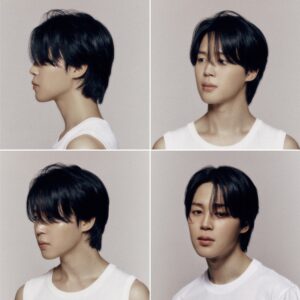
This is why it is strange that the song that follows these three is “Set Me Free Pt. 2”. The grandiose nature of this track, declaring freedom, a shaking off of past judgments, and a snarling disregard for those who disagree (“fuck all your opps”), whilst undoubtedly entertaining, feels like a step back in terms of emotions. With the previous three songs giving Jimin the space to really think about his life and his memories, it does not really flow to have so much more of a surface-level track following. “Set Me Free” feels a lot more like an opener, though positioning this song at the start of the album would have undermined the impact of the introduction of “Face-off”.
Musically, this sequence makes a little more sense, though “Set Me Free” is still a huge sidestep from the tone of the other tracks on the album. “Face-off” is slow, with sing-song synth hooks dripping behind a relaxed beat, only speeding up slightly for the chorus. The ferocity that could link it to “Set Me Free” comes from Jimin’s vocals, dragging out syllables, chanting out the chorus, and even rapping at points.
His tone is softer in “Like Crazy” and “Alone”, sticking mostly to the higher range that he is known for. A strong eighties-style synth drives the former (it could be straight from the Drive soundtrack), while the latter sticks to a more lo-fi energy. Both songs do play a little with sampling slightly unusual audio: “Alone” goes for an alarm clock and chanting “la la las”, while “Like Crazy” samples dialogue from the film that Jimin claims inspired the song. These are fun little touches that become a full section of the song by the time we reach “Set Me Free” with its full gospel choir opening.

But it is not at the end of the album where sampling different audio, instruments, and singers reaches its peak. Between “Face-off” and “Like Crazy”, we are treated to “Interlude: Dive”, a soundscape of reversing melodies, audio from Jimin at BTS concerts, conversations, and even Jimin’s panting breaths. Woven together by swirling strings and trickling keyboards, it is an atmosphere more than a song in and of itself. It feels like a step into Jimin’s mind, or at least his process, and gives intriguing context to the rest of the album.
The very last sound effect in “Interlude: Dive” is the pouring of liquid into a glass, the setting down of a bottle, and a faint gulp. If this track is a sonic brainstorm of every theme within the album, then this moment represents the drunkenness that seems to pervade a lot of the tracks. In “Like Crazy” he asks the recipient of the song to not “come if you’re drunk”. In “Alone” he is “drunk and asleep” in the pre-chorus, whilst Hennessey gets a mention in “Set Me Free”.
This inclusion of drunkenness, most present in the most despairing tracks of “Alone” and “Face-off”, serves to underline a sense of uncertainty, a lack of control that may be at the source of the painful, angry emotions woven throughout the songs.
Tonight, I don’t wanna be sober (Sober)
Pour it up, it’s all fucking over
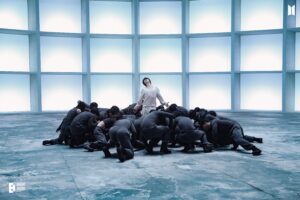
It is also another step that Jimin is taking away from the squeaky-clean image that must be maintained in idol life. Though it could be viewed as slightly excessive to reference drinking in every single song, with “Like Crazy” and “Set Me Free”, it feels more like a metaphor for letting inhibitions go and escaping than a literal use of alcohol. The club and bathroom setting of the “Like Crazy” MV, complete with the frenetic energy of the synth, amplifies this sense of the woozy and carefree, again suggesting that drunkenness is more of a motif than anything else.
Or, to look back again at the audio of an actual bottle being poured from and drunk in “Interlude: Dive”, it could well be a direct reference to moments in Jimin’s life. In the Rolling Stone interview, he talks about how he discussed his anxieties about his life and music with his members over drinks. He states that they were the ones who encouraged him, “[who] suggested, ‘Why don’t you express these emotions through music?'”.
It feels like Jimin very much took the advice of his bandmates in this album. Face is sewn through with anxious emotions, sometimes appearing as aggression, sometimes as introspection, and often with the strong desire to reach a place of freedom. Whether it is freedom from aspects of idol life or the freedom from the intensity of these emotions, we can’t be sure. But Jimin isn’t either, and he does not shy away from that uncertainty.

The emotional narrative across tracks might not always make sense, while the music (and themes) are not groundbreakingly experimental. But, as a first step facing into a solo career, properly, for the first time, Jimin has worn his heart on his sleeve. If he can gain the freedom that he is yearning for here, then there will only be more impressive work to come.
(YouTube, Rolling Stone. Images via HYBE. Lyrics via Genius. )
